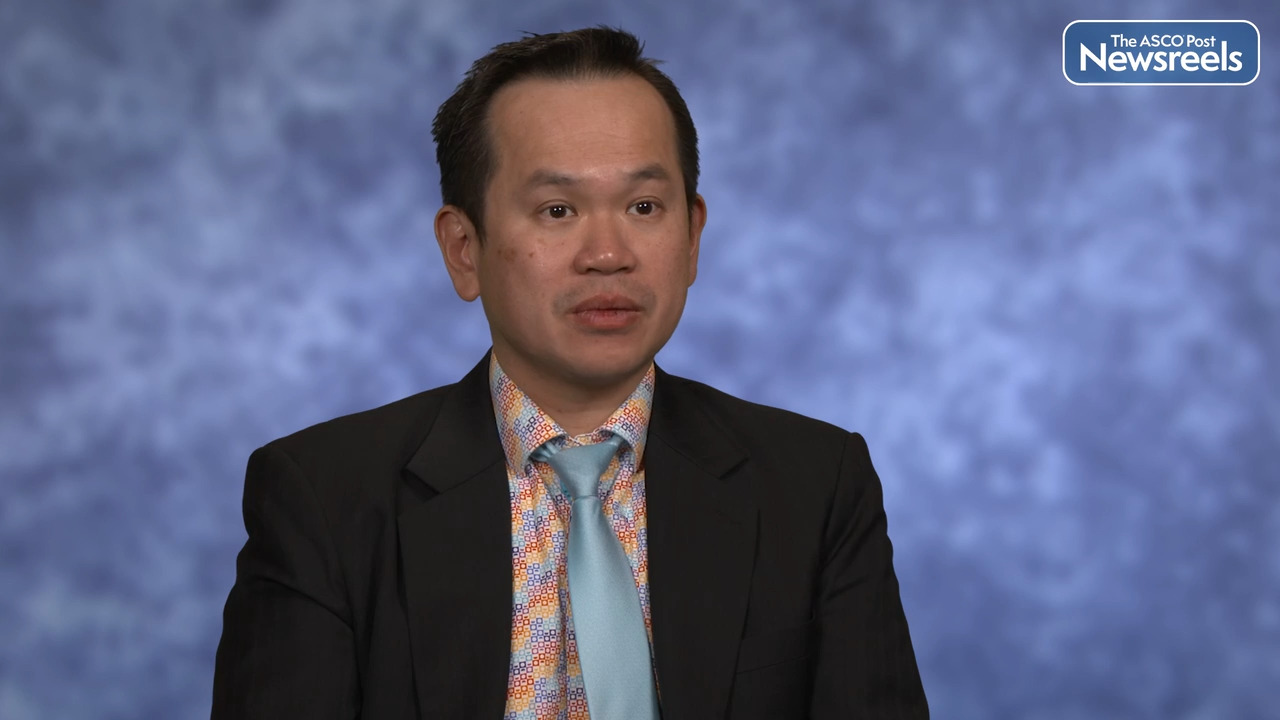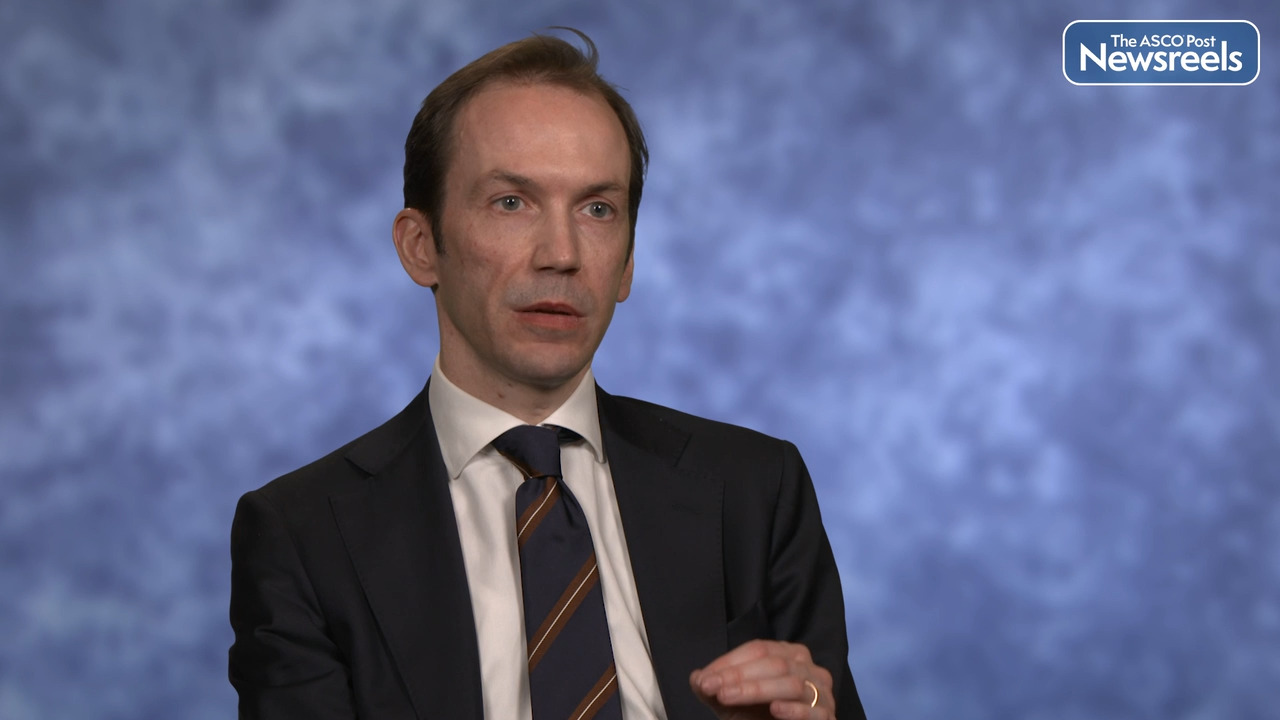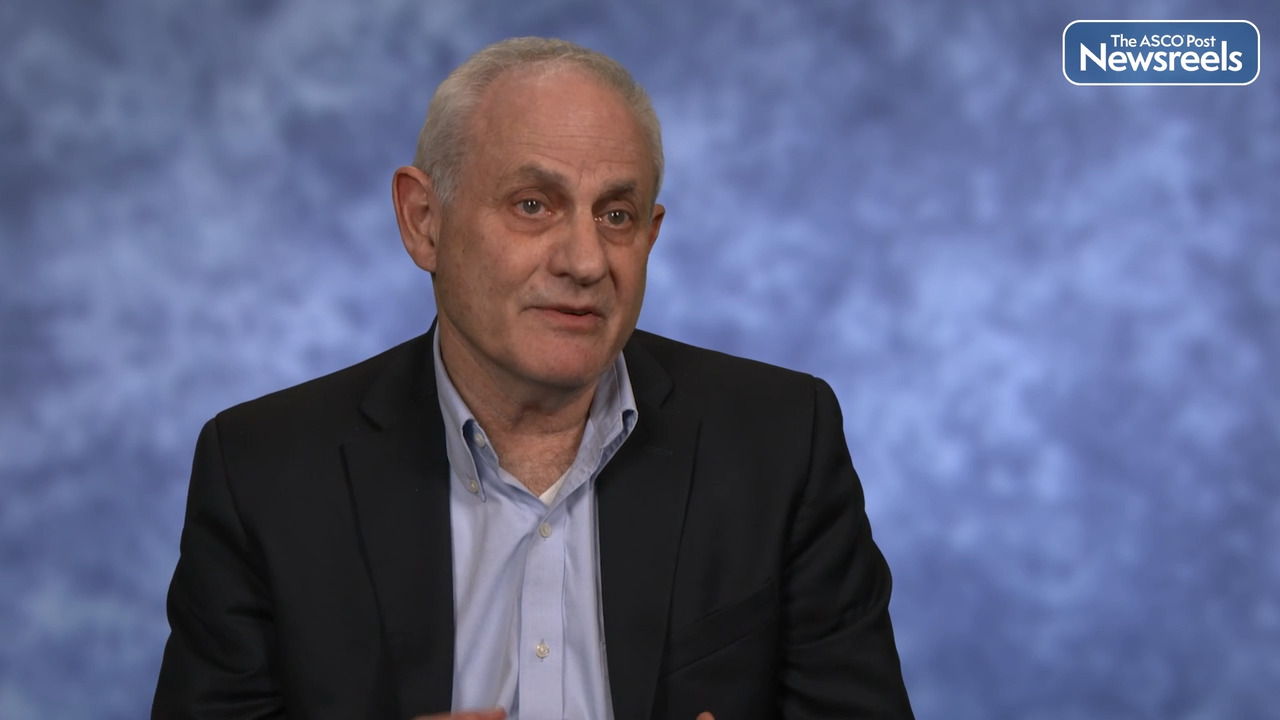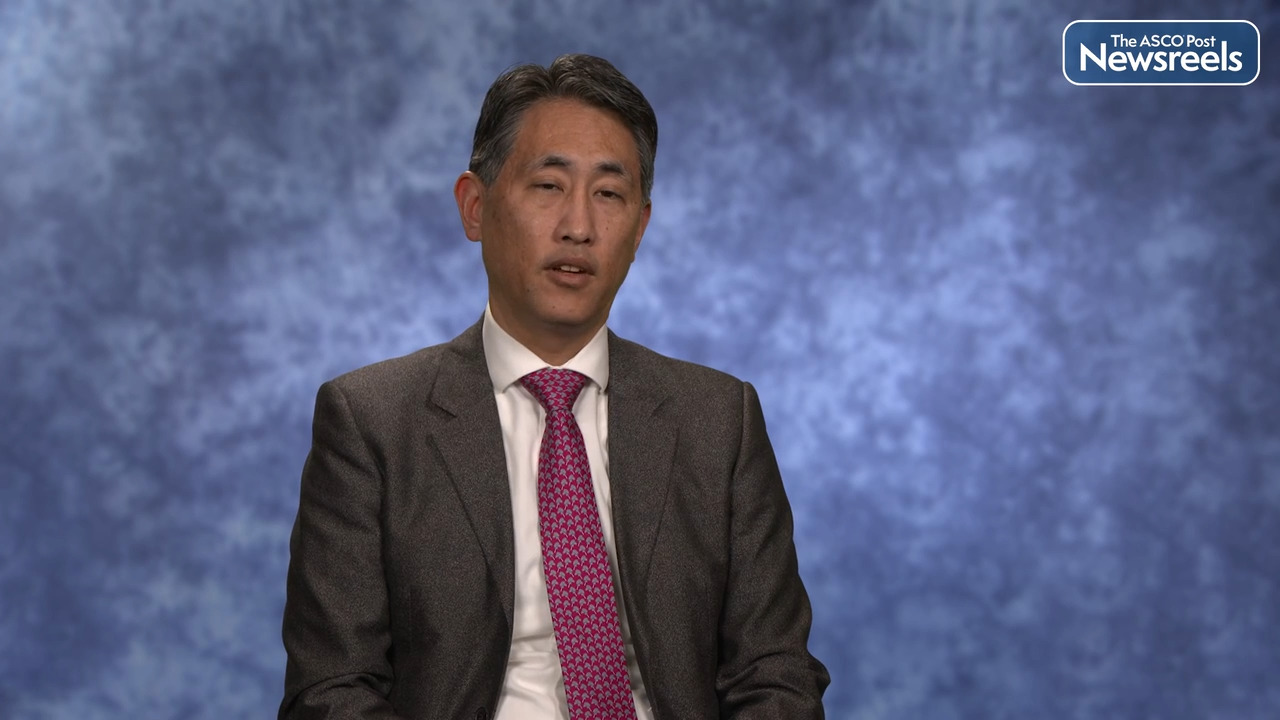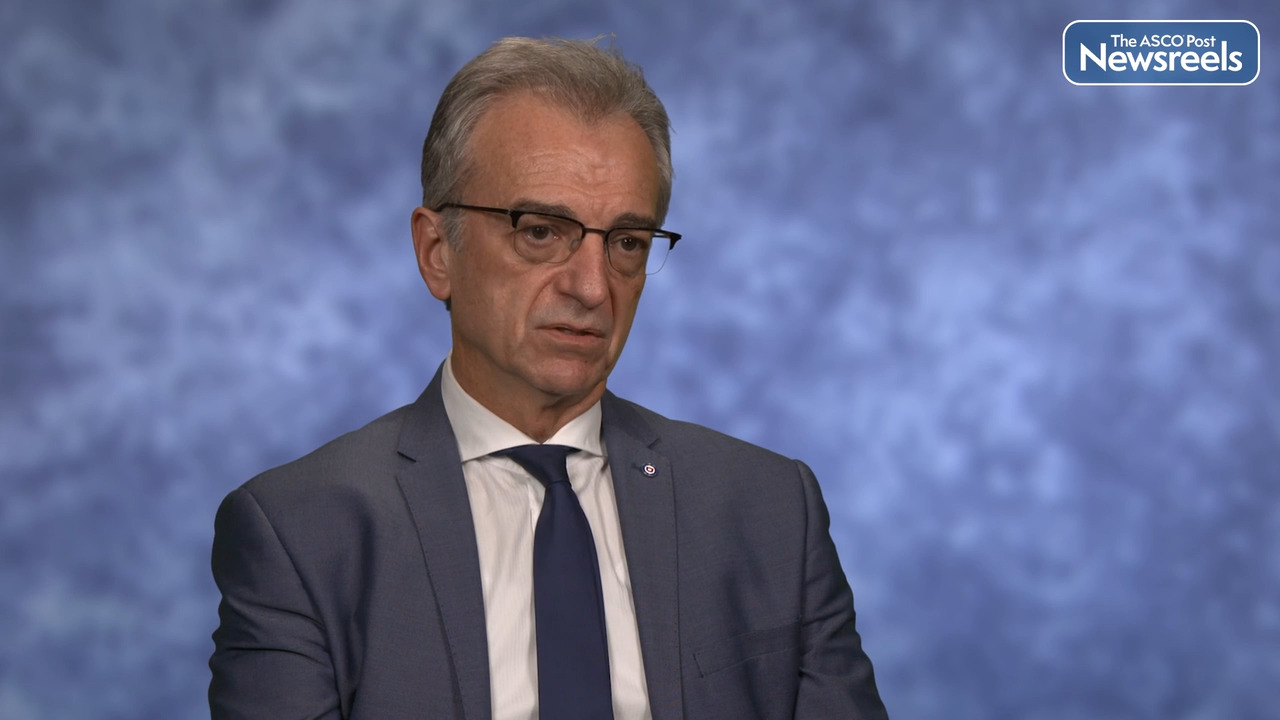Transcript
Disclaimer: This video transcript has not been proofread or edited and may contain errors.
Vadim Koshkin:
Hello, everyone. I'm here today with Tanya Jindal and we're going to discuss the biomarker analysis of the UNITE Study. Tanya, tell us a little bit about the UNITE study and what it is.
Tanya Jindal:
Of course. UNITE is a large multi-institutional retrospective cohort of patients with advanced urothelial carcinoma treated with novel targeted agents such as enfortumab vedotin and sacituzumab govitecan. We have data from about 16 US sites for about 600 patients, and then initial data looking at patients in real-world setting was published in 2021.
Vadim Koshkin:
That's great. Tell us about this specific analysis of the UNITE study that you're presenting at this conference.
Tanya Jindal:
Of course. In this analysis we'll be focusing on enfortumab vedotin. Enfortumab vedotin was approved in 2019 for treatment refractory advanced urothelial carcinoma. However, we have limited data available on biomarkers predicting outcomes of enfortumab vedotin treatment, so in this analysis, this is what we looked at.
Vadim Koshkin:
Great. Tell us what were some of the results? What were some of the most important and pertinent findings?
Tanya Jindal:
Of course. We identified 170 patients with advanced urothelial carcinoma treated with enfortumab vedotin and who had next generation sequencing results available. Their demographic and baseline characteristics were pretty representative of the patient population that we see in clinic. The survival and treatment outcomes that we saw for the overall cohort, observed a response rate of 47%, median progression-free survival of 6 months, median overall survival of 12 months. These were pretty consistent with what we see in the EV clinical trials that are being done.
Vadim Koshkin:
Yeah. What specifically were the biomarker findings?
Tanya Jindal:
If you focus on the biomarker findings, the observed response rate was higher in patients with alterations in ERBB2 relative to wild-type patients and TSE-1 relative to wild-type patients. However, this didn't translate into significant differences in progression-free survival and overall survival.
However, we did find several biomarkers that were associated with the time to event endpoints. Specifically, we saw a shorter progression-free survival in patients with CDKN2A, CDKN2B, and MTAP alterations, and a longer overall survival was seen in patients with high tumor mutation burden relative to patients with low tumor mutation burden.
Vadim Koshkin:
Yeah, that's really, really interesting data. And then, of course, a very, very interesting analysis. But what were some of the limitations of this analysis?
Tanya Jindal:
Some of the limitations of this analysis were its retrospective design, patient selection, and associated confounding biases. Also, we used a lot of next-generation sequencing platforms, so that is something we want to work on in the future.
Vadim Koshkin:
Despite these limitations that many retrospective studies have, of course, what are some of the, perhaps, clinical implications, the important implications for patients, and maybe some of the next steps forward as some of the future analyses we may do?
Tanya Jindal:
Our findings are hypothesis generating, but they require external validation. We think, in the future, it may help inform some mechanistic work, translational work, clinical trial design, and may even help select patients for treatment with enfortumab vedotin and other therapies in clinic.
Vadim Koshkin:
Well, that's really fascinating. Thank you again for sharing these data with us, and yeah, really appreciate you being here today.
